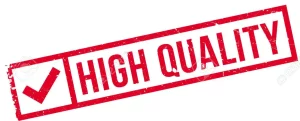- Premium Academic Help From Professionals
- +1 757 528 8682
- support@standardwriter.com
Slippery Slope of Continuous Rationalizations
Slippery Slope of Continuous Rationalizations
|
Order Number |
636738393092 |
|
Type of Project |
ESSAY |
|
Writer Level |
PHD VERIFIED |
|
Format |
APA |
|
Academic Sources |
10 |
|
Page Count |
3-12 PAGES |
Instructions/Descriptions
Slippery Slope of Continuous Rationalizations
Situational ethics takes the view that ethical judgments must be made within the context of the entirety of the situation and that all normative features of a situation must be viewed as a whole, that is, that there are no fixed moral recipes applicable to every dilemma. However, situation ethics does hold that there are some fixed norms that can be applied on a universal basis.
Situation ethics, then, does not attempt to abstract morally relevant features from one particular case and apply them to other similar cases. In other words, the moral status of acts must be evaluated within the context of the entire situation, making use of some universal principles, but insisting that these principles can be only understood appropriately within the particulars of the situation.
Some would argue that situational ethics can seduce healthcare managers and administrators in various ways. It can tug on their heartstrings and temporarily let right-versus-wrong decisions masquerade as right-versus-right decisions. Such ethical dilemmas, if left unchecked, can lead down a slippery slope of continuous rationalizations that deteriorate into illegal behavior.
In your response, you are asked to take a position in support and against the argument presented in the above paragraph. First, assume you agree with the argument, and then support your position with a logical rationale and at least one “real world” example of where situational ethics played a pivotal role in the failure of a healthcare organization. Next, you will present a logical argument that situational ethics, if left unchecked, will lead healthcare managers and administrators “down a slippery slope of continuous rationalizations that deteriorate into illegal behavior.”
Situational ethics takes the view that ethical judgments must be made within the context of the entirety of the situation and that all normative features of a situation must be viewed as a whole, that is, that there are no fixed moral recipes applicable to every dilemma. However, situation ethics does hold that there are some fixed norms that can be applied on a universal basis.
Situation ethics, then, does not attempt to abstract morally relevant features from one particular case and apply them to other similar cases. In other words, the moral status of acts must be evaluated within the context of the entire situation, making use of some universal principles, but insisting that these principles can be only understood appropriately within the particulars of the situation.
Some would argue that situational ethics can seduce healthcare managers and administrators in various ways. It can tug on their heartstrings and temporarily let right-versus-wrong decisions masquerade as right-versus-right decisions. Such ethical dilemmas, if left unchecked, can lead down a slippery slope of continuous rationalizations that deteriorate into illegal behavior.
In your response, you are asked to take a position in support and against the argument presented in the above paragraph. First, assume you agree with the argument, and then support your position with a logical rationale and at least one “real world” example of where situational ethics played a pivotal role in the failure of a healthcare organization. Next, you will present a logical argument that situational ethics, if left unchecked, will lead healthcare managers and administrators “down a slippery slope of continuous rationalizations that deteriorate into illegal behavior.”
Slippery Slope of Continuous Rationalizations
Slippery Slope of Continuous Rationalizations
Place the Order Here: https://standardwriter.com/orders/ordernow / https://standardwriter.com/ |
|||||||||||||||||||||||||









